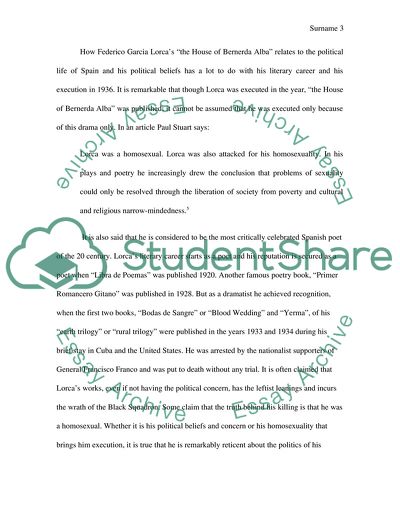Cite this document
(The Theme of Oppression and Repression by Tyrannical Bernarda Essay, n.d.)
The Theme of Oppression and Repression by Tyrannical Bernarda Essay. Retrieved from https://studentshare.org/literature/1720532-federico-lorcas-le-casa-de-bernarda-alba
The Theme of Oppression and Repression by Tyrannical Bernarda Essay. Retrieved from https://studentshare.org/literature/1720532-federico-lorcas-le-casa-de-bernarda-alba
(The Theme of Oppression and Repression by Tyrannical Bernarda Essay)
The Theme of Oppression and Repression by Tyrannical Bernarda Essay. https://studentshare.org/literature/1720532-federico-lorcas-le-casa-de-bernarda-alba.
The Theme of Oppression and Repression by Tyrannical Bernarda Essay. https://studentshare.org/literature/1720532-federico-lorcas-le-casa-de-bernarda-alba.
“The Theme of Oppression and Repression by Tyrannical Bernarda Essay”, n.d. https://studentshare.org/literature/1720532-federico-lorcas-le-casa-de-bernarda-alba.


